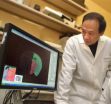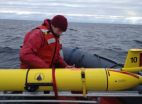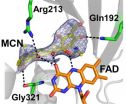(Press-News.org) Alexandria, Va.–January 9, 2013– America Speaks, Volume 13, a compilation of public opinion polls commissioned by Research!America, features timely data about Americans' views on issues related to biomedical and health research. A majority of Americans (72%) say the new Congress and the President should take action to expand medical research within the first 100 days of the 113th Congress. Public support for increased government spending on medical research holds particular relevance as Congress considers whether to further delay, eliminate or permit "sequestration," a budget cutting process that - if it moves forward - would mean drastic cuts in funding for medical research.
"Americans will be looking closely at the actions of the new Congress to see whether lawmakers support policies that will accelerate research and scientific discovery," said Research!America Chair John Edward Porter. "We're on the brink of finding new treatments and cures for many deadly and debilitating illnesses. Congress must act to ensure that funding for research is sufficient to address current and emerging health threats."
Most Americans believe accelerated investments in medical research should be a priority, yet nearly 60% say elected officials in Washington are not paying close attention to combating the many deadly diseases that afflict Americans. An overwhelming majority of Americans (83%) also believe that investing in medical innovation has a role in creating jobs and fueling the economy.
When asked about stagnant federal funding levels for research and the impact to science and technology, a wide majority (85%) said they were concerned.
Americans also expressed concerns about U.S. global competitiveness in the near future. Less than half (41%) believe the U.S. will be the world leader in science and technology in the year 2020. In addition, almost half (48%) do not believe the U.S. has the best health care system in the world.
"Consistently, our polls have shown that Americans value research and believe it's part of the solution to what ails us," said Research!America President and CEO Mary Woolley. "The return on investment is demonstrated in medical breakthroughs that have made diseases that were considered a death sentence into treatable conditions."
Twenty years ago, AIDS ranked as the number-one health concern among Americans. Since then, research has saved countless lives and continues to drive progress. The number one health concern in 2012 was the cost of health care.
Among notable highlights in the booklet:
78% of Americans believe that it is important that the U.S. work to improve health globally through research and innovation.
70% of Americans believe that the government should encourage science, technology, mathematics and engineering (STEM) careers.
Nearly half (48%) believe government investment in health research for military veterans and service members is not enough.
66% of Americans are willing to share personal health information to advance medical research if appropriate privacy protections were used.
75% say it's important to conduct research to eliminate health disparities.
Only 1 in 5 (19%) know research is conducted in every state.
###
To view America Speaks, Volume 13, visit: http://www.researchamerica.org/uploads/AmericaSpeaksV13.pdf
Research!America began commissioning polls in 1992 in an effort to understand public support for medical, health and scientific research. The results of Research!America's polls have proven invaluable to our alliance of member organizations and, in turn, to the fulfillment of our mission to make research to improve health a higher national priority. In response to growing usage and demand, Research!America has expanded its portfolio, which includes state, national and issue-specific polling. Poll data is available by request or at www.researchamerica.org.
Online polls are conducted with a sample size of 800-1,052 adults (age 18+) and a maximum theoretical sampling error of +/- 3.2%. Data are demographically representative of adult U.S. residents. Polling in this publication was conducted by Zogby Analytics and Charlton Research Company.
About Research America
Research!America is the nation's largest nonprofit public education and advocacy alliance working to make research to improve health a higher national priority. Founded in 1989, Research!America is supported by member organizations representing 125 million Americans. Visit www.researchamerica.org.
Majority of Americans say new Congress should take immediate action to expand medical research
New poll summary reveals concerns among Americans about medical progress in tight fiscal climate
2013-01-09
ELSE PRESS RELEASES FROM THIS DATE:
Hispanics leery of health care providers, often avoid cancer screenings, Moffitt study shows
2013-01-09
When researchers at Moffitt Cancer Center and colleagues conducted a random telephone survey among blacks, whites and Hispanics in New York, Baltimore and San Juan, Puerto Rico, they found that Hispanics are nearly twice as likely to report that fear of being used as a "guinea pig" and lack of trust in medical professionals contribute in being unwilling to participate in cancer screenings. The researchers concluded that health care providers need to do a better job of instilling trust and dispelling certain fears, particularly among Hispanics, to improve cancer screening ...
Eliminating useless information important to learning, making new memories
2013-01-09
AUGUSTA, Ga. – As we age, it just may be the ability to filter and eliminate old information – rather than take in the new stuff - that makes it harder to learn, scientists report.
"When you are young, your brain is able to strengthen certain connections and weaken certain connections to make new memories," said Dr. Joe Z. Tsien, neuroscientist at the Medical College of Georgia at Georgia Regents University and Co-Director of the GRU Brain & Behavior Discovery Institute.
It's that critical weakening that appears hampered in the older brain, according to a study in ...
Research: Bad news can spur strategic change in businesses
2013-01-09
CHAMPAIGN, Ill. — Negative media coverage may prompt firms to engage in greater levels of strategic change than previously thought, according to research by a University of Illinois business professor.
While businesses have typically viewed the news media as a megaphone for publicity, businesses have not viewed the media as an influential stakeholder capable of shaping the strategic decisions of key executives, says Michael K. Bednar, a professor of business administration at Illinois.
"As the news media reports negatively about firms, that registers with executives," ...
US health disadvantage spans age and socioeconomic groups
2013-01-09
WASHINGTON — On average, Americans die sooner and experience higher rates of disease and injury than people in other high-income countries, says a new report from the National Research Council and Institute of Medicine. The report finds that this health disadvantage exists at all ages from birth to age 75 and that even advantaged Americans -- those who have health insurance, college educations, higher incomes, and healthy behaviors -- appear to be sicker than their peers in other rich nations.
"We were struck by the gravity of these findings," said Steven H. Woolf, professor ...
Scientists use marine robots to detect endangered whales
2013-01-09
Two robots equipped with instruments designed to "listen" for the calls of baleen whales detected nine endangered North Atlantic right whales in the Gulf of Maine last month. The robots reported the detections to shore-based researchers within hours of hearing the whales (i.e., in real time), demonstrating a new and powerful tool for managing interactions between whales and human activities.
The team of researchers, led by Woods Hole Oceanographic Institution (WHOI) scientists Mark Baumgartner and Dave Fratantoni, reported their sightings to NOAA, the federal agency responsible ...
Drug resistance: 'Baby steps' can pay off big
2013-01-09
HOUSTON -- (Jan. 9, 2013) -- Rice University scientists have found that mutations of small effect can turn out to be game changers in the bacterial fight against antibiotic drugs.
The discovery came during an exhaustive, three-year effort to create a mathematical model that could accurately predict how specific mutations allow bacteria like E. coli to adapt to antibiotics like minocycline. The findings are detailed in a Dec. 10 study in the Proceedings of the National Academy of Sciences.
"As biologists, we tend to focus on big effects that result from big changes, ...
Hold the diet soda? Sweetened drinks linked to depression, coffee tied to lower risk
2013-01-09
SAN DIEGO – New research suggests that drinking sweetened beverages, especially diet drinks, is associated with an increased risk of depression in adults while drinking coffee was tied to a slightly lower risk. The study was released today and will be presented at the American Academy of Neurology's 65th Annual Meeting in San Diego, March 16 to 23, 2013.
"Sweetened beverages, coffee and tea are commonly consumed worldwide and have important physical—and may have important mental—health consequences," said study author Honglei Chen, MD, PhD, with the National Institutes ...
Study shows cognitive benefit of lifelong bilingualism
2013-01-09
Washington, DC — Seniors who have spoken two languages since childhood are faster than single-language speakers at switching from one task to another, according to a study published in the January 9 issue of The Journal of Neuroscience. Compared to their monolingual peers, lifelong bilinguals also show different patterns of brain activity when making the switch, the study found.
The findings suggest the value of regular stimulating mental activity across the lifetime. As people age, cognitive flexibility — the ability to adapt to unfamiliar or unexpected circumstances ...
Nobel laureate James Watson publishes novel hypothesis on curing late-stage cancers
2013-01-09
Cold Spring Harbor, NY – "Although mortality from many cancers has been steadily falling, particularly those of the blood [i.e., leukemias], the more important statistic may be that so many epithelial cancers (carcinomas) and effectively all mesenchymal cancers (sarcomas) remain largely incurable."
With these words as preface, Nobel laureate James D. Watson, Ph.D., in a newly published paper that he regards "among my most important work since the double helix," sets forth a novel hypothesis regarding the role of oxidants and antioxidants in cancers that are currently ...
Vitamin D supplementation does not reduce knee pain, cartilage loss in patients with osteoarthritis
2013-01-09
CHICAGO – In a two year randomized trial, patients with symptomatic knee osteoarthritis who received vitamin D supplementation did not have a significant difference in knee pain or cartilage volume loss compared to patients who received placebo, according to a study appearing in the January 9 issue of JAMA.
"Knee osteoarthritis (OA) is a common age-related musculoskeletal disorder that has significant functional impact and has considerable societal costs through work loss, early retirement, and arthroplasty. Despite its impact, there are no medical treatments established ...
LAST 30 PRESS RELEASES:
DGIST identifies “magic blueprint” for converting carbon dioxide into resources through atom-level catalyst design
COVID-19 vaccination during pregnancy may help prevent preeclampsia
Menopausal hormone therapy not linked to increased risk of death
Chronic shortage of family doctors in England, reveals BMJ analysis
Booster jabs reduce the risks of COVID-19 deaths, study finds
Screening increases survival rate for stage IV breast cancer by 60%
ACC announces inaugural fellow for the Thad and Gerry Waites Rural Cardiovascular Research Fellowship
University of Oklahoma researchers develop durable hybrid materials for faster radiation detection
Medicaid disenrollment spikes at age 19, study finds
Turning agricultural waste into advanced materials: Review highlights how torrefaction could power a sustainable carbon future
New study warns emerging pollutants in livestock and aquaculture waste may threaten ecosystems and public health
Integrated rice–aquatic farming systems may hold the key to smarter nitrogen use and lower agricultural emissions
Hope for global banana farming in genetic discovery
Mirror image pheromones help beetles swipe right
Prenatal lead exposure related to worse cognitive function in adults
Research alert: Understanding substance use across the full spectrum of sexual identity
Pekingese, Shih Tzu and Staffordshire Bull Terrier among twelve dog breeds at risk of serious breathing condition
Selected dog breeds with most breathing trouble identified in new study
Interplay of class and gender may influence social judgments differently between cultures
Pollen counts can be predicted by machine learning models using meteorological data with more than 80% accuracy even a week ahead, for both grass and birch tree pollen, which could be key in effective
Rewriting our understanding of early hominin dispersal to Eurasia
Rising simultaneous wildfire risk compromises international firefighting efforts
Honey bee "dance floors" can be accurately located with a new method, mapping where in the hive forager bees perform waggle dances to signal the location of pollen and nectar for their nestmates
Exercise and nutritional drinks can reduce the need for care in dementia
Michelson Medical Research Foundation awards $750,000 to rising immunology leaders
SfN announces Early Career Policy Ambassadors Class of 2026
Spiritual practices strongly associated with reduced risk for hazardous alcohol and drug use
Novel vaccine protects against C. diff disease and recurrence
An “electrical” circadian clock balances growth between shoots and roots
Largest study of rare skin cancer in Mexican patients shows its more complex than previously thought
[Press-News.org] Majority of Americans say new Congress should take immediate action to expand medical researchNew poll summary reveals concerns among Americans about medical progress in tight fiscal climate



